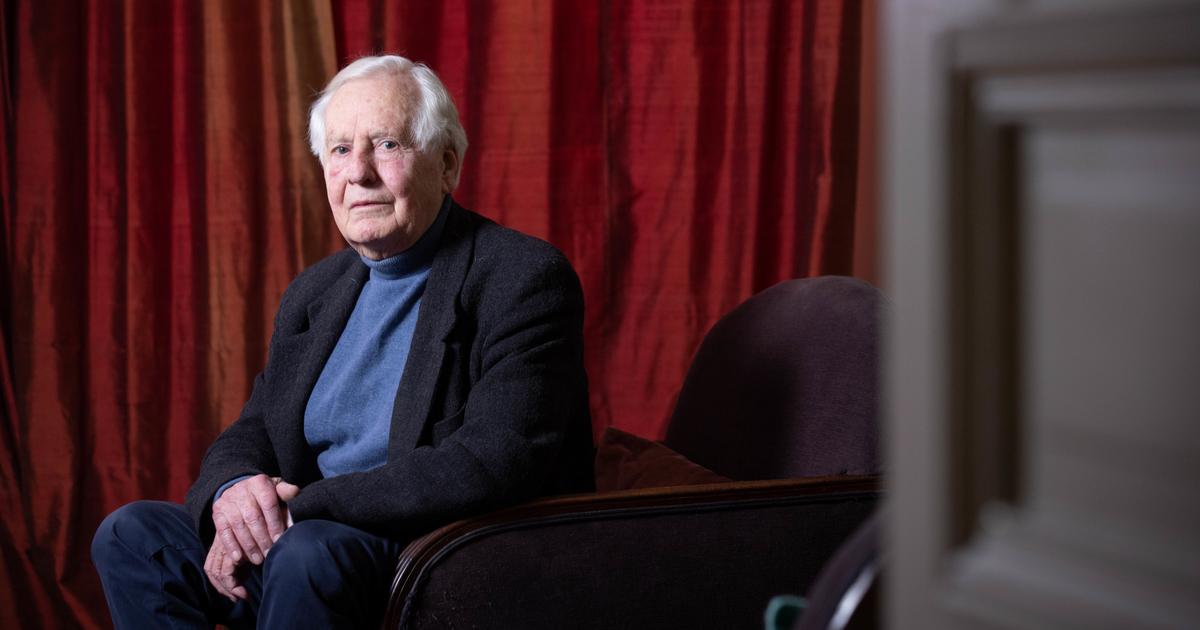SPIEGEL
: Mr. Cohn-Bendit, after last Sunday's parliamentary elections, in which President Emmanuel Macron lost his absolute majority, many fear that France will now become ungovernable.
They also?
Cohn-Bendit
: I would be in favor of looking at the whole thing rationally.
An absolute majority is an exception in a liberal democracy, so this election result is quite normal, in Germany it would not be worth mentioning.
The strongest party is Macron's ruling party.
And with that he now has to look for a coalition partner.
Point.
Out of.
But words like "coalition partner" or "compromise" are foreign words in France.
I think the way government is run in Paris has reached its limits.
SPIEGEL
: The conservative Xavier Bertrand said this week that entering into an alliance with Macron would be like checking in on the Titanic shortly before it sinks.
Cohn-Bendit
: All of these politicians don't understand that they themselves are sitting on the »Titanic«.
You are part of a political system that has just been voted out and has no future.
But they still believe that President Charles de Gaulle's world is still alive.
That's over, France is divided into many different camps, there are no longer any clear majorities.
Only a parliamentary debate with different majorities can do justice to this new diversity.
SPIEGEL
: Why does the political class in Paris find it so difficult not to see compromises as a sign of weakness, but as part of a political culture?
Cohn-Bendit
: The French Revolution is still constitutive for the political thinking of the French: There is one ruler, that is the king, only that he is now sitting in the Élysée.
But you still want to reserve the right to trim him, maybe even decapitate him.
The French are a rebellious people.
There is little room for the boring compromise search of a German system.
In France, to compromise means to compromise oneself.
On the other hand, those who are straightforward and stick to their goals do not betray their ideals.
This radicalism is seen as the higher value, even if it no longer suits a society that has become more diverse.
SPIEGEL
: Shortly before the election, Macron appealed to voters to give him a solid majority.
In this speech he said that not a single vote should be missing from the republic – that is, from him – as if he had the sole claim to this term.
Cohn-Bendit
: That's the madness of this system.
There is a republican king sitting in the Élysée Palace, and this king says: »La République, c'est moi.« I think Macron was convinced that when you are elected president you are automatically confirmed by a parliamentary majority.
That's why he didn't campaign.
Now he is faced with the shambles of his own hubris.
SPIEGEL
: What led to this hubris?
In 2017, as a candidate, he identified many weaknesses in the political system and called for reforms.
Cohn-Bendit
: Over time, Macron has moved away from much of what he formulated in 2017.
He was sucked in by all this fuss.
It's not all clear what power gives one of these posts in the Élysée.
A French president is hardly ever confronted with the political forces of the opposition, he is not even allowed to speak in parliament.
He is »hors-sol«, he hovers above things.
SPIEGEL
: After the second round of the presidential elections two months ago, Macron said he understood and heard all those who didn't vote for him.
He announced a fresh start and a new method of government.
After that there was nothing to see.
Was that just lip service?
Cohn-Bendit
: I don't think so, I exchanged ideas with him at the time.
He took the many votes for the two blocks on the far right and left seriously.
He had seen and understood the discontent in the country.
But that didn't mean he shed his contempt for parliament, which almost all presidents of the fifth republic have in common.
SPIEGEL
: The parliamentary elections also resulted in the rise of two politicians on the left and right.
Among other things, Jean-Luc Mélenchon and Marine Le Pen want to leave NATO and not comply with EU agreements.
Why do the French vote for such politicians, what does that say about French society?
Cohn-Bendit
: The boys who voted for Mélenchon are not necessarily anti-European.
And they just don't care about NATO.
They wanted to vote left again and after years of humiliation they wanted to be able to say: We are on the left.
And there is also a right-wing France that openly votes for the national right.
SPIEGEL
: This right-wing France has helped Marine le Pen's Rassemblement National (RN) party to 89 MPs in parliament, up from just eight.
Aren't they all that serious?
Cohn-Bendit
: A part of French society is totally unsettled to the point of being racist, it is much harder and more divided than in Germany.
This also has something to do with the terrorist attacks in France, whose psychological impact should not be underestimated.
That's hard for a society to digest.
The RN MPs will continue to fuel this division, but many of their projects will not stand a chance.
SPIEGEL
: Couldn't you sometimes count on the support of the conservatives?
Cohn-Bendit
: Let's take one of the first projects they announced.
Should the RN actually propose a law against Islamism that would ban the wearing of headscarves in public spaces, almost all factions in parliament will vote against it, even Mélenchon.
SPIEGEL
: The opposition accuses Macron of deliberately bringing about the current situation by promoting the extreme camps on the left and right for strategic reasons.
Cohn-Bendit
: Then there would be a magic formula for how to do it.
I don't believe in that, the reasons for this lie first and foremost in French society, in this irrational culture of revolt.
There is less room for reason in French politics than in Germany.
Mélenchon is the best example of this.
He stands for a radical politics of unreasonableness.
His announced benefits would cost over 300 billion euros.
Do you have a wish for next Christmas?
Mélenchon fulfills it to you.
SPIEGEL
: So Macron is not to blame for the changed party landscape?
Cohn-Bendit
: Of course he has his part in it.
He declared the Socialists and Republicans unsustainable in 2017.
He wanted to bring together the best of both the left and the centre-right in his own movement, both content and people.
That was his goal and he succeeded.
But he made another mistake.
SPIEGEL
: What do you mean?
Cohn-Bendit
: He did not position himself clearly enough against the RN before the second round of the general election.
He did not say clearly that there should be no votes for the Rassemblement National when left-wing and RN candidates face each other.
In 2017 he had attacked everyone who acted so ambiguous.
Now, out of sheer power instinct, he himself has forgotten what is morally the only right thing to do.
SPIEGEL
: The G7 summit is coming up next week.
How bad is Macron now at international level?
Cohn-Bendit
: He's weakened, but he can overcome that.
It would be a drama for Europe if he were no longer taken seriously.
But I don't believe in that.
Olaf Scholz is also stricken, but he is still heard.
Macron's proposals will continue to be taken seriously.
The damage is primarily domestic.
SPIEGEL
: What will change first for Macron?
Cohn-Bendit
: This election took away some of Macron's power.
He will have to accept that he shares power.
The next instance of power will be a new prime minister, they will no longer be able to be his subordinates as before.
And Macron will have to help shape parliamentarization of the fifth republic.
SPIEGEL
: And that means giving up power again?
Cohn-Bendit
: He will now make proposals to the other parties - to strengthen purchasing power and to fight inflation, for ecological change, for health care reform.
If these proposals fail due to the blocking policies of others, he can dissolve parliament.
This is the sword of Damocles for anyone who thinks they can always say no.
And I am sure that many French people will not like this naysayer strategy either and could punish it.
SPIEGEL
: Macron has seemed strangely withdrawn in the past few weeks, was hardly present during the election campaign, what was going on there?
Cohn-Bendit
: I think he's out of energy, out of juice.
The decisive question is: Can he find this energy again, will he grow with this new challenge?
So far he has always been at his best in difficult situations.
Two years ago everyone told me: Macron will not be re-elected.
But he was re-elected, even if the election result is not glorious.
SPIEGEL
: Will the coming years also decide whether a left-wing radical candidate or a right-wing populist could move into the Élysée in 2027?
Cohn-Bendit
: I don't know, there is no inevitability.
Macron has just experienced the biggest political setback of his tenure.
The question is whether he now has the intelligence to overcome this and do France the most important service he can do that country, which is to radically change the political culture through his proposals and his behavior.
And to make Parliament a place where decisions are made in a democracy.
He seems to have understood that.
On Wednesday, he said the way laws are made must now change and called on all parties to cooperate.
The question is how serious he is about it.
And whether the opposition will agree to it.








